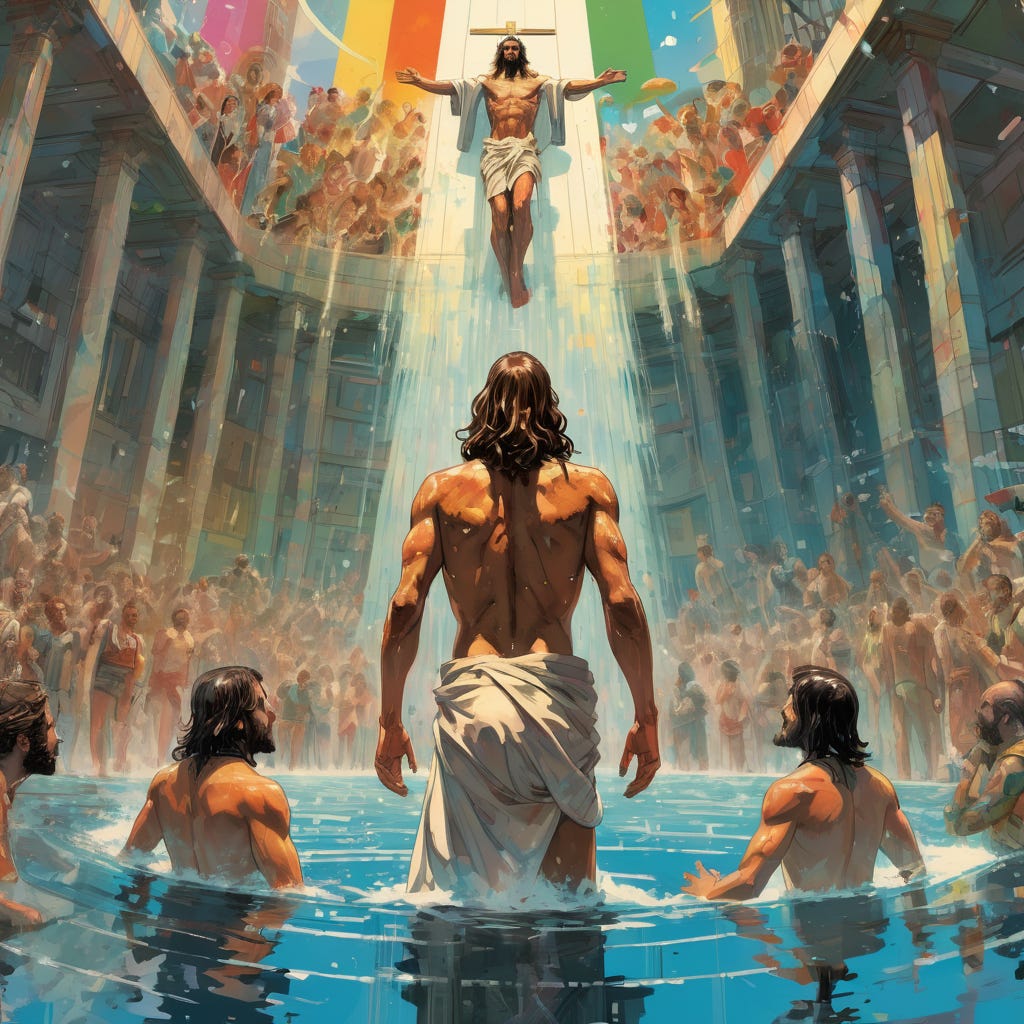The Bible Hacker Path
Gideon's Soul for the American Cry
The Scroll of God is a Pure Mirror
Gideon, son of Joash, speaks not only as a judge of ancient Israel but as a prophetic image for the modern American man. His journey—from hidden cynic to humble conqueror—charts the steps of divine election: how a fearful, doubting, angry soul is called, tested, broken, and remade into a vessel of Jesus Christ’s deliverance.
This path is not automatic. Each word Gideon speaks is a trial, a moment of deep Anfechtung, a station of the soul, a stage which challenges our American zeitgeist to face the mirror, repent of our sins, and grow.
Gideon’s election is not merely as a story of ancient Israel, but a scroll of repentance for the modern man. For each stage in Gideon’s tongue, there is a corresponding American distortion, a counterfeit posture of heart and mind that must be named, faced, and crucified. We do not lack potential Gideons; we lack trust in the weapons of our warfare.
Let him who has ears hear what the Spirit says to the man in the arena (ahem, winepress.)
THE PHILOSOPHICAL PATH OF GIDEON: A Mirror for American Repentance
1. Scoffing in the Winepress → Cynicism Masquerading as Wisdom
“If Jesus Christ is with us, why has all this happened to us?”
This is the American pessimist-proud, the man who mistakes his bitterness for brilliance. He mocks providence, despairs over decline, and dares to name his unbelief “realism.” But in truth, it is the posture of the spiritually lazy—those who won’t fight, so they mock the fight. Repentance here requires reverent fear: that God is not mocked and that His silence may be judgment, not absence.
2. Skepticism of the Self → False Humility as Cowardice
“My clan is the weakest… I am the least.”
This is the cult of the insecure intellectual. He knows what ought to be done, but believes others are better suited to do it. He withdraws under the guise of modesty, but it is fear of failure that governs him. Repentance here demands masculine confidence—not in self, but in divine election. Christ calls weak men and makes them strong. To protest is to call Christ a fool.
3. Acceptable Testing → Analysis Paralysis and Fleeces of Excuse
“Show me a sign…”
The modern American delays obedience through obsession with data, feelings, and “clarity.” He lays out endless fleeces, demanding certainty before faith. But Gideon only tested once—then again in reversal. The American tests endlessly, never acting. He forgets that risk is part of obedience. Repentance here calls for bounded trust—to act before all questions are answered, because Christ is enough.
4. Nighttime Obedience → Secret Christianity and Brand-Safe Discipleship
“He did it by night because he feared.”
The American Christian often obeys quietly, privately, inoffensively—so that his faith does not disturb the status quo. He builds no altars; he leaves no marks. This phase, though forgiven in Gideon, is a testing phase, not a final form. Repentance here means shedding the skin of secrecy. If Baal is god, serve him. But if Jesus Christ is Lord—tear down the altars by day.
5. Confirming the Call → The Narcissism of Special Revelation
“Let the fleece be wet… now let it be dry…”
Too many Americans crave supernatural signs not to obey, but to feel chosen. They want to be special, seen, sovereign. But Gideon’s fleece was not selfish—it was covenantal. He sought assurance not for ego but for Israel’s salvation. Repentance here requires dying to your own storyline. You are not the main character. Jesus Christ is. And your obedience serves His kingdom, not your brand.
6. Silent Submission → The Death of Hustle
Gideon let the army be reduced from 32,000 to 300.
The American spirit screams: Build! Grow! Scale! Dominate! But election often means emptying, not expanding. Christ loves to save “not by many.” Repentance here is a relinquishment of control—a death to the idol of optimization. It is the birth of peaceful dependence. No spreadsheets, no schemes. Just 300 men, jars, and torches.
7. Worship Before War → The Recovery of Awe
“He worshiped.”
How many American men hear the enemy’s confession and still forget to worship? How many treat the war like a podcast, not a liturgy? Gideon worshiped before he fought. This is where American Christianity must return: to reverent doxology before action. Repentance here is a call to put the sword down long enough to sing. Not to fight for Christ instead of worship—but because of it.
8. Battle Cry of Convergence → Name-Bearing Without Name-Building
“The sword of Jesus Christ and of Gideon!”
This is not co-branding. This is the union of the man and his King. The American temptation is to trumpet one’s name louder than Christ’s—or to vanish behind false humility. But Gideon does not claim glory, nor does he refuse his place. He bears the Name rightly, because he has been broken. Repentance here is to speak boldly, but only as one who has died already.
9. Refusal of the Crown → Abdicating the Ego After Victory
“I will not rule over you… Jesus Christ shall rule over you.”
And here the American must die entirely. For the final temptation is to become king of the awakening you helped birth. To mistake the victory as your own. Gideon refuses. He points upward. He steps back. Repentance here is cruciform: when the crown is offered, point to the Cross.
THE REPENTANCE SCROLL OF THE AMERICAN MAN
From Scoffing to Sword, from Fear to Fire.
We do not lack cause. We lack courage.
We do not lack election. We lack trust.
Let Gideon teach you: You do not need a better past. You do not need more men or bread. Listen, and kneel, you, Mighty Man of God.







I’ve struggled to understand application from Gideon’s story.
I just have seen it as another example of God using the ‘foolish things’, and ‘the least’. So, thanks RevFisk for putting this out there. Much food for thought (& faith, & action)
We do not lack knowledge, we lack righteousness. Stand up in Him.